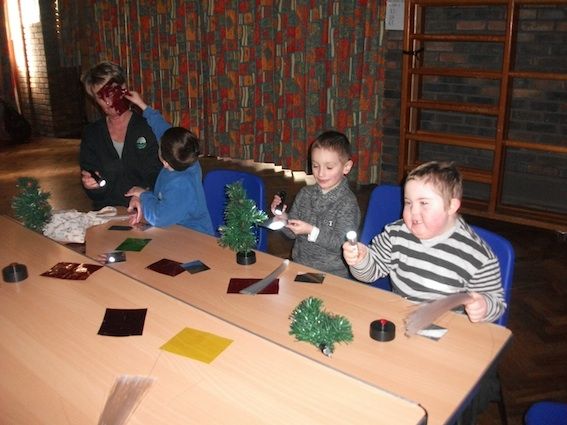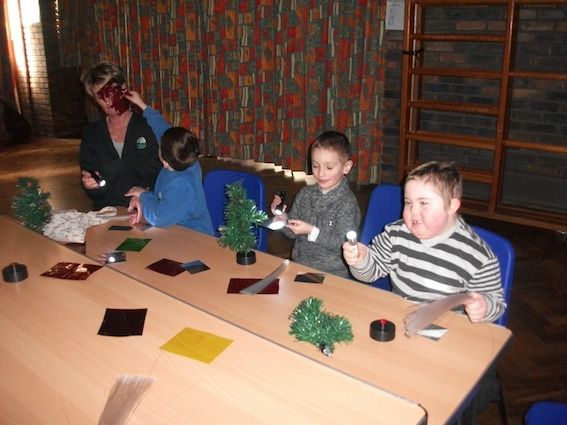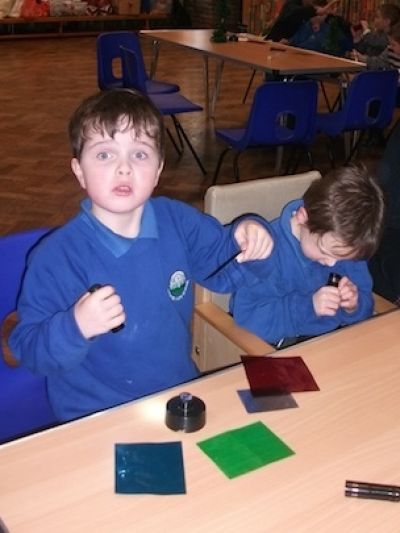‘Sensory’ Science days for Special Schools
Our workshops provide the excitement and fascination of science, with sensory activities to thrill children of all ages in Special Schools. In these tailored workshops the emphasis is set on providing a sensory experience for the children that will engage and stimulate pupils. The workshops are designed to suit learners who are achieving at P- levels and National curriculum levels.

The very practical and sensory nature of the sessions means that they are accessible to and enjoyed by pupils with Profound and Multiple learning difficulties and severe learning difficulties as well as a more academically able population. The work is especially designed to capture the attention of those pupils who may find more traditional workshops hard to engage: with for example pupils with autism love the very visual way that cause and effect is demonstrated to them. All sessions are very hands on and practical, and seek to allow the children to interact with our dedicated resources to through the exploration of visual and practical activities including making light and colours, exploding rockets and volcanos, building structures from simple materials (e.g. Spaghetti and marshmallows) and creating electricity from fruit and vegetables.
Making rockets using vinegar and bicarbonate of soda to launch rockets, and launching water rockets high into the air.
Using torches and coloured gels and optical fibres to mix different colours, with light and plasma balls to provide enchanting lighting experiences.
Exploring shapes and structures that can be used to build structures, shapes based on triangles like pyramids are able to support structures, however, others like cubes do not support structures but twist and collapse without triangles incorporated to provide stability.
Building circuits using fruit – to power clocks and calculators, amazing children that electricity can be made with fruit. This includes making connections with crocodile clips and using different metals to connect to the fruit.
A messy but fun activity, demonstrating that when you mix two chemicals together you can get a powerful reaction that can spray red ‘lava’(foam) out of a bottle or squirt it in the air.
More mixing of chemicals to produce a slimy coloured plastic material from PVA glue which can be handled, squashed and shaped and eventually produces a solid material which bounces (a bit!).
Dr Francis is a doctor of physics and astrophysics who has a passion for exciting children about physics. He has a wide knowledge of science and its uses in work and industry. He has been a scientific researcher and has 12 years’ experience of the use of science in business with many industrial examples to share.
Please contact us to tailor a workshop for your school.

What’s included
All equipment and supplies will be supplied for the sessions. Schools need to provide a classroom or hall with tables and a computer and projector for the sessions. All sessions are tailored for all the year and ability of the group and can range from 3⁄4 hour to 1 1⁄2 hours long depending on your requirements.


“Dr Gareth Francis was the best value outside educator we have invited in. His activities were entirely based at the right level for our very complex students and our pupils whose ability ranges from P1ii to NC level 2 loved the workshops he provided.
They were so engaged and fascinated that without exception all groups managed to participate for up to 45 minutes, something with is quite rare for some of our students. Watching the sheer delight on pupils’ faces as the rockets launched to the ceiling and the satisfaction they felt when the fruit battery actually worked was matched only by the interest and fascination shown by pupils’ sensorial investigation of the plasma balls and fibre optics.
Dr Francis observed and responded warmly and flexibly to the different and complex needs of our students and this made our primary and secondary science day a thrilling event for all. Highly recommended to all special schools.”